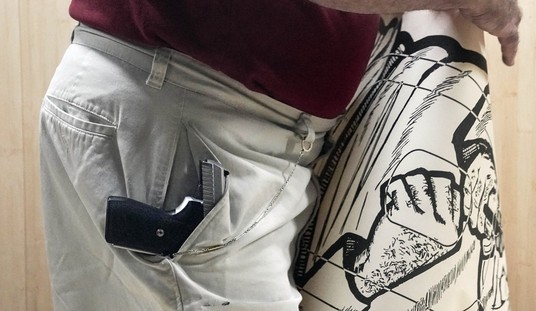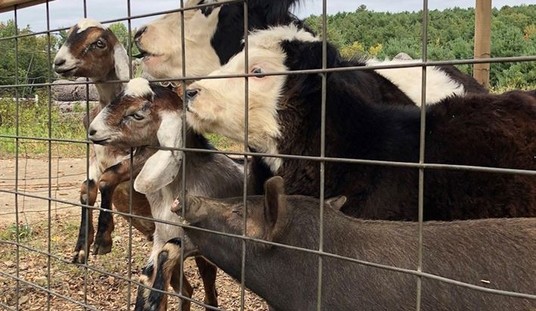I said earlier this week that, as a father myself, I just don’t see how the dad of the suspect in the Fourth of July mass murder in Highland Park, Illinois could have endorsed his son’s Firearm Owner ID application in December of 2019 given that police had been called out to the suspect’s home twice that year; once on a report that the suspect had tried to commit suicide, and the second when a family member reported that the suspect was threatening to “kill everyone.”
Since then Robert Crimo, Jr. has spoken out publicly, saying that he never saw his son as a danger to himself or others and that the 2019 threat to kill family members was just a “child’s outburst.” Oddly, in that same interview he talked about his son’s knife collection, which was taken by police at the time of the “outburst”, though he allegedly told law enforcement shortly after the weapons were removed from the home that the collection was his, and not his son’s.
I’ve been less than impressed by Crimo’s statements since his son was arrested and accused of planning and carrying out the cowardly attack on a crowd of people hoping to enjoy an Independence Day parade, but does he bear any legal responsibility for the attack? Police say they’re now investigating the father for endorsing his son’s FOID application in December of 2019, and say he “could” be culpable for the horrific killings to some degree.
[The suspect] was still under 21 in 2020 when he purchased the AR-15-style weapon allegedly used in Monday’s attack — a purchase he could only make because his father sponsored his Firearm Owners Identification (FOID) application.
Under an affidavit [the suspect’s] father signed, he agreed to be “liable for any damages resulting from the minor applicant’s use of firearms or firearm ammunition.”
Asked if the suspect’s parents could be in any criminal jeopardy, Illinois State Police Director Brendan Kelly said it’s too early to tell.
“There’s probably going to be civil litigation. There is ongoing criminal prosecution and criminal investigation,” he told reporters Wednesday.
“Issues of culpability, liability, who may have responsibility in certain circumstances, are all part and parcel of that process. Making a conclusionary statement, the Illinois State Police, weighing in on that, is not appropriate.”
He added: “That determination and the answer to that question is something that will have to be decided in the court.”
The father’s liability is going to hinge on how that provision in the affidavit he signed is interpreted by police and the courts. The suspect may have been under 21 when he purchased the gun used in the attack, but he was 21 when he carried out his cowardly plan. You could read that provision as holding sponsors of under-21s responsible for any criminal misuse of a gun in perpetuity, or at least as long as the applicant has a valid FOID card, but you could also view that provision as holding co-sponsors liable only as long as the applicant is a minor.
Given the carnage involved in the attack, my guess is that prosecutors will try to go with the broader interpretation of the provision if possible. If they do, then what the suspect’s father knew or should have known about his son’s behavior and troubled mind won’t really matter, at least in court. He signed his name on the dotted line, and that would be enough to hold him at least partially liable for his son’s actions.
Of course, all this ignores the fact that the suspect was never arrested in either 2019 incident, and that police declined (or failed, depending on your point of view) to take him in for a mental health evaluation under the state’s civil commitment law. As a result, he had no disqualifying factors that would have prevented him from passing a background check, which he did repeatedly once he’d obtained his FOID card.
As it turns out, police have made plenty of trips to the home where the suspect was raised, and where his mother still lives, and not every call was about the suspect’s behavior.
Highland Park police were called to the family home of the alleged Independence Day parade sniper at least nine times between 2010 and 2014 in response to domestic disputes, according to newly released police records.
Most of the incidents involved allegations of verbal or physical altercations between the shooting suspect’s parents, Robert Crimo Jr. and Denise Pesina.
… A review of public records show repeated Highland Park police involvement at the Crimo family home over the years, especially between the mother and father. Crimo Jr., the former owner of now-shuttered Highland Park deli, unsuccessfully ran for mayor in 2019.
In October 2010, police were called to the home because of a fight between Pesina and Crimo Jr. According to the police report, Crimo Jr. said Pesina had been “trash talking” him, knocked all his belongings off his dresser, and hit him with a screwdriver. Pesina, in a statement to police, said that Crimo Jr. had been “making mean statements to me like always, calling me names.” Crimo Jr. later told police that Pesina had not tried to hit him with the screwdriver and declined to put that detail in his statement to police.
On two occasions, Crimo Jr. and Pesina called the police on one another for attempts to drive while intoxicated, which escalated. In June 2011, Crimo Jr. called police contending Pesina was attempting to drive to pick up her daughter while intoxicated, and that after being confronted about this she blocked Crimo Jr. from leaving. In November 2013, Pesina called police contending that Crimo Jr. had been trying to drive to work while intoxicated.
Pesina pleaded guilty to driving under the influence in Lake County in 2012. In 2002, Pesina pleaded guilty to a child endangerment charge after leaving Crimo III, then about 2 years old, alone in a car with the windows rolled up for 27 minutes in the parking lot of a toy store, according to court records. It was approximately 79 degrees outside during that incident.
It sounds like there’s a bit of history in the family of reaching out to police but ultimately backing away from filing any formal charges once they’ve been called out, and the incident where Crimo, Jr. first told police his wife had hit him with a screwdriver but then changed his story is reminiscent of him telling police that the knives in his ex-wife’s home belonged to him, while telling the media this week that they belonged to his son.
As questionable as Crimo, Jr.’s past behavior and statements have been, I have to say that I do have issues with holding him responsible for the acts of his 21-year old son, even with his endorsement of the FOID application in 2019. In fact, I can’t help but wonder what good the provision requiring an endorsement is supposed to do if police have no reason to trust the word of the co-sponsor. Of course, I think the FOID card itself is unconstitutional, but that’s a post for another day.









